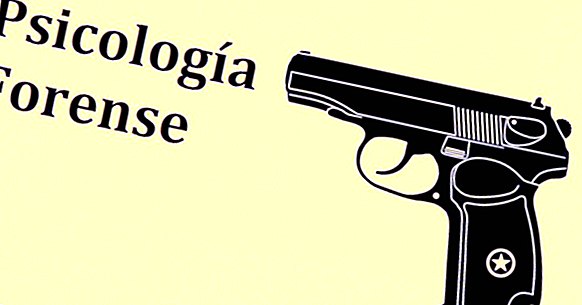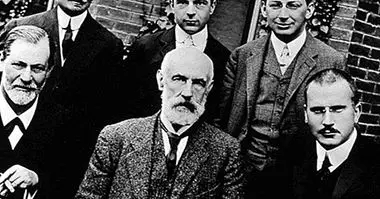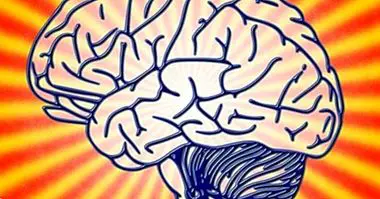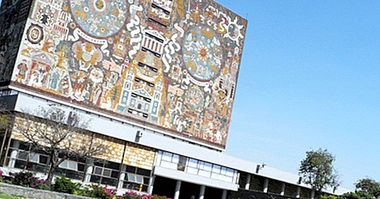Forensic Psychology: definition and functions of the forensic psychologist
As we have already explained in other posts, Psychology is the science that studies human behavior and mental processes in a broad sense . These mental processes are the genesis of behavior: our thinking ends up being concretized in certain tangible and observable motivations, attitudes and behaviors.
Forensic Psychology: one of the areas in psychology
But what is Forensic Psychology? The forensic term comes from Latin forum. That is, the plaza, the public space where, in Roman times, public trials took place.
So that, forensic psychology is the branch of psychology that studies and intervenes in judicial processes in order to provide data and knowledge to help solve cases. The professionals of forensic psychology are forensic psychologists, and their function is to collect, study and interpret correctly the different psychological data that can provide important elements in the face of a trial.

Functions and skills of forensic psychologists
The professionals of forensic psychology, in addition to being graduates in psychology, must have knowledge and tools of judicial, procedural and criminal law. This allows them to have the necessary background to be able to understand the judicial processes with precision and to correctly apply the psychological techniques in this field.
Forensic psychologists work together with lawyers, experts, prosecutors and judges. In fact, forensic psychologists act as experts when offering their professional testimony in certain trials , providing data and knowledge of interest to collaborate with the Justice and ensure that the circumstances of the case can be clarified, at least in regard to certain psychological and / or psychopathological aspects of some or all parties involved.
A professional in psychology, but also an expert in law
A forensic psychologist is not simply a psychologist who exercises certain tasks in a state justice administration. Actually, he is a great dominator of all the concepts, norms and dynamics of the legal system in which he finds himself .
The forensic psychologist has a broad understanding of all the legal and procedural mechanisms. In fact, if it were not so, it could easily be excluded from certain processes in which it participated, having lost the credibility of the different actors involved in the trial. The judicial system is a formal system in which methods and procedures are of paramount importance. Hence, the forensic psychologist, besides being an expert in their field, should know and adapt perfectly to these regulations.
- It may interest you: "Differences between criminal psychology and forensic psychology"
What functions does a forensic psychologist have before a court?
There are many elements and factors in which forensic psychology plays a key role in the context of a judicial process. In order to help the judge make sound decisions, the forensic psychologist puts a series of knowledge and tools at the disposal of the case.
One of the most common functions refers to the study carried out by forensic psychologists on the mental faculties and psychological conditions of any of the parties involved in a trial (defendants, complainants and even witnesses). This analysis helps to elucidate, in the case of the accused, if they were in full use of their mental faculties at the time when, allegedly, they committed a crime. For example, if there is a person accused of homicide, a forensic psychologist would have the capacity to make a report indicating whether, at the time of the crime, the accused was aware of his actions.
The training of a forensic psychologist
We have talked about what is forensic psychology and also about the tasks performed by professionals in judicial psychology. However: What training should a forensic psychologist have to be able to practice?
This point is more complicated to explain, since each country has different legislation regarding the background academic that require this type of professionals. In general, we can say that, to devote to forensic psychology, the professional must have a degree or university degree in Psychology, and then specialize in one of these branches: psychology of organizations, social psychology or clinical psychology, being this last area especially relevant.
After, must take a postgraduate or Master in forensic psychology . However, it is of special interest that the forensic psychologist has extensive knowledge in psychological evaluation, psychopathology and diagnostic and intervention techniques.As the forensic psychologist has to help to clarify whether the accused person has mental disorders or not, part of their work is similar to that of a clinical psychologist, although in this case their interests and those of the person evaluated do not usually coincide.
Function in criminal and corrective measures
In addition to the foregoing, forensic psychology also has some influence when it comes to reporting and suggesting the type of treatment that should be followed by a person sentenced to imprisonment. A) Yes, the judge may have more elements to decide how to execute the penalty and what will be the corrective measures imposed .
Forensic Psychology collaborates and describes, but does not judge
It should be pointed out: forensic psychology can help a judge to determine certain psychological factors of the parties involved in a judicial process; It can explain the behavior of a person to make it more understandable that he or she has been a victim or aggressor in certain circumstances. This information is offered to the court so that it may be able to make a weighing decision about the facts.
But nevertheless, the forensic psychologist is not empowered to defend or exercise as a prosecutor of any of the parties involved in a lawsuit. Its function is descriptive and informative, and therefore it must be completely neutral.
Courts of justice usually ask very specific questions to the forensic psychologist, always related to the case being judged and around the different psychological variables that may have influenced the facts. The terminology with which the different judicial actors are expressed is that of the legal sphere, and so on it is also expected that the forensic psychologist sticks to a language that is univocal and coherent with the context .
In other words, the different actors involved in the judicial process (judge, lawyers, prosecutors and jury) need to know the direct effects of the psychological state of some of those involved to determine to what extent they are responsible for their actions. In this sense, it should be clarified that it would not make any sense for the forensic psychologist to make ramblings about the psychic state of any of the parties judged beyond the task entrusted to him, which is shed light on the psychological circumstances of the parties involved during the events that are being judged, and by extension of the treatment that should be given to any of the parties, if necessary.
Guilt, responsibility, exemptions ...
Forensic psychologists are often subject to controversy with some frequency. This is because, as professionals in the judicial field, they have the power to influence the decisions of the courts of justice . For example, forensic psychologists can point out the convenience of exempting an accused person from guilt, arguing that, at the time of the events, he was not aware of his actions. Therefore, they have the ability to release an individual, even if he or she could have been the material author of a crime.
Likewise, judicial psychologists can also advise that aggravating or mitigating factors be applied in certain crimes, indications that may have repercussions in the sentence imposed on the accused.
These functions always involve great controversies . For example, in the case of an accused who murdered a child, if it is declared unimpeachable for clinical (psychiatric) reasons, the family of the murdered minor may erupt in anger against such a decision, even though it has strict clinical grounds.
However, and although it can generate all kinds of social debates, the truth is that forensic psychology contributes decisively to justice can be delivered in a balanced and fair, if I allow the redundancy.



















